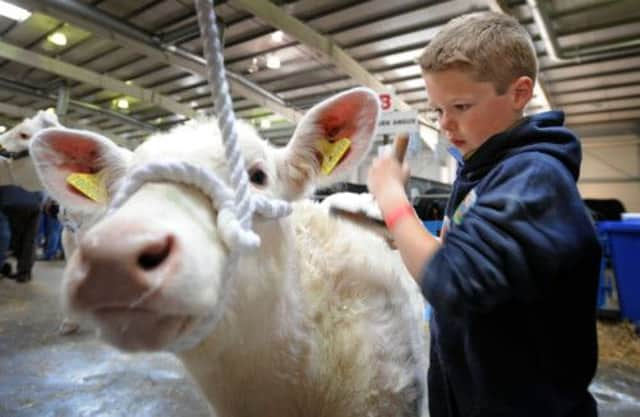Comment: Spotlight may help boost family farms’ status


Having kicked off with the Year of Homecoming back in 2009, apparently they have been so successful that the government has decided to keep the ball rolling with a new programme aimed at boosting Scotland’s tourism and events industries.
So coming up we have 2015 Year of Scotland’s Food and Drink; 2016 Year of Innovation, Architecture and Design; 2017 Year of History, Heritage and Archaeology and 2018 Year of Young People. (Just in case you were wondering, we are currently in the Year of Natural Scotland.)
Advertisement
Hide AdAdvertisement
Hide AdThose whose memories stretch all the way back to 2010 will already have realised we have had a food and drink year before, but, like a decent dairy coo, there is no harm in milking it regularly.
Making the announcement, Alex Salmond said: ”During Scotland’s last Year of Food and Drink, the International Culinary Tourism Association described Scotland as one of the most unique, memorable and interesting places for food and drink on the planet. And the facts speak for themselves: we recently announced the industry has reached historic sales levels, with a turnover of £13.5 billion.”
You would be forgiven for thinking that that is one hell of a lot of deep-fried Mars bars, but whether the focus year was the driver of the record sales or simply a noisy passenger perhaps remains a moot point.
I have always been a bit suspicious of these themed time periods and wonder if they really are instrumental in achieving much. Take, for instance, last Thursday’s International Talk Like a Pirate Day. I have severe doubts if it resulted in any marked increase in the sales of eye-patches, peg legs or even parrots, although “Arrgggg, Jim Lad” was probably uttered a bit more than normal.
Sometimes these themed events can have unintended consequences, though, and a fit of enthusiasm during last week’s Red Tractor Week – designed to highlight the cast-iron nature of the organisation’s traceability scheme – managed to leave the organisers with faces as crimson as their logo.
With a lottery winner’s luck, a BBC presenter covering the affair somehow managed to buy a pack of pork chops from a supermarket which, although having the paper trail to prove it was British through and through, was found to have a less than one-in-a-100 chance of actually coming from these shores when the meat was put to a high-tech chemical isotope test.
Despite the all-round embarrassment I suppose it did at least prove that the scheme had sufficient integrity to admit that human error could still dash the best laid schemes.
So after all this, I was left wondering what we should make of the news that 2014 has been designated International Year of the Family Farm – by no less an august body than the General Assembly of the United Nations.
Advertisement
Hide AdAdvertisement
Hide AdNow you might ask why farming should be singled out in this way. After all, even with the plethora of celebrations going on out there I don’t think that there is an international month of the family shop, a week of the local garage, a day of the village library or even a ten minutes of the local police station.
To some extent it might be a matter of sheer numbers because, even after the mass migration towards cities over recent decades, globally an estimated 43 per cent of the productive population is directly involved in agriculture.
There is undoubtedly a huge range in both the size and sophistication of family farms, but whether they are large cropping farms in Europe or subsistence plots in the Third World they all provide the very backbone upon which agriculture is built and the rest of the population fed.
The organisers have made it clear that they don’t want the event to be simply a tribute year – however deserved that might be – nor one simply of recognition.
The aim of putting family farms in the spotlight is to get them onto the agenda of decision-makers around the globe and to get their voices heard. Once there they can explain the opportunities and constraints which they face, as well as raising awareness of the productive, economic, social, and environmental credentials which family farms around the planet represent.
And that’s a theme that is just as important here in the developed West as it is in Third World countries.